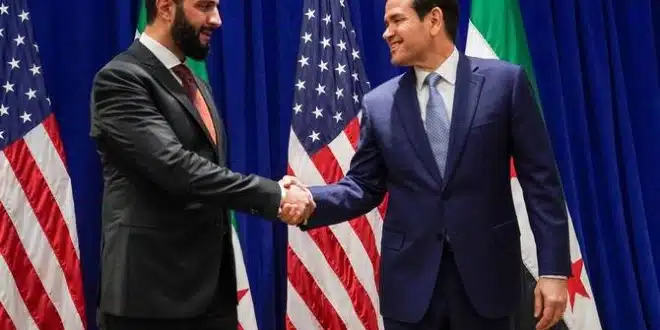U.S. Secretary of State Marco Rubio has described Lebanon as standing at a “historic” crossroads, stressing Washington’s commitment to supporting a stronger and more stable Lebanese state. Speaking in New York during a high-level meeting with Gulf Cooperation Council (GCC) leaders, Rubio emphasized the importance of reinforcing Lebanon’s sovereignty while reducing the influence of external actors.
Call for a Sovereign and Inclusive Lebanese State
Rubio underlined that any sustainable path forward must involve a Lebanese state that reflects the country’s diversity and protects the rights of its citizens. He made clear that Washington envisions a Lebanon “free of the influence of Iran and Hezbollah and others who might undermine that stability.” By limiting external interference, he argued, Lebanon could reclaim the ability to govern effectively and uphold its sovereignty.
Addressing Lebanon’s Economic Crisis
Another priority, according to Rubio, is enabling Lebanon to recover from its deep and prolonged economic collapse, which has left large sections of the population struggling with poverty, inflation, and limited access to basic services. “We want to see Lebanon emerge from a longstanding economic crisis,” he said, highlighting U.S. support for reforms and international initiatives designed to stabilize the economy.
Lebanon’s financial meltdown, widely regarded as one of the worst global crises since the mid-19th century, has eroded trust in state institutions. Rubio suggested that stronger governance and greater independence from destabilizing actors could help rebuild confidence both domestically and internationally.
Meeting with GCC Leaders
The Secretary of State’s comments came during a meeting with GCC Secretary General Jasem Mohamed Al-Budaiwi and the foreign ministers of the council’s member states. The discussion focused on regional stability and cooperation, with Lebanon’s future seen as a shared concern between the United States and Gulf partners.
For Washington, closer coordination with Gulf states could play a vital role in mobilizing resources, encouraging reforms, and providing Lebanon with alternatives to reliance on groups and states that, in Rubio’s words, “undermine stability.”


